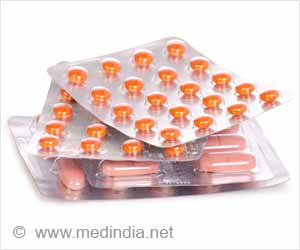It has emerged that American researchers have made an advance towards uncovering lithium's mode of action as it treats bipolar disorders

Inflammation in the brain, like other parts of the body, is an important process to help the brain combat infection or injury.
However, excess or unwanted inflammation can damage sensitive brain cells, which can contribute to psychiatric conditions like bipolar disorder or degenerative diseases like Alzheimers.
It's believed that lithium helps treat bipolar disorder by reducing brain inflammation during the manic phase, thus alleviating some of the symptoms.
Exactly how lithium operates, though, has been debated.
Mireille Basselin and colleagues at the National Institute of Aging and University of Colorado, Denver, took a detailed approach to this question by using mass spectrometry analysis to analyse the chemical composition of brain samples of both control and lithium-treated rats stressed by brain inflammation.
Advertisement
Moreover, they also demonstrated, for the first time, that lithium treatment increased levels of a metabolite called 17-OH-DHA in response to inflammation. 17-OH-DHA is formed from the omega-3 fatty acid DHA (docosahexaenoic acid) and is the precursor to a wide range of anti-inflammatory compounds known as docosanoids.
Advertisement
Basselin and colleagues noted that the concentration of DHA did not increase, which suggests that lithium may increase 17-OH-DHA levels by affecting the enzyme that converts DHA to 17-OH-DHA.
By reducing both pro-inflammatory AA products, and increasing anti-inflammatory DHA products, lithium exerts a double-protective effect which may explain why it works well in bipolar treatment.
The study has appeared in the May 2010 Journal of Lipid Research.
Source-ANI
RAS /










